Selection of our Projects
We have compiled a selection of projects from our subject areas of reactor safety, decommissioning and dismantling, storage, disposal, safety, radiation protection and environment and energy, so that you can get an idea of what our work as a research and expert organisation looks like in concrete terms.

So-called Small Modular Reactors (SMR) or Micro Modular Reactors (MMR) are currently being considered for low-CO2 energy generation by many countries - including our direct neighbours in France, Poland and the Czech Republic. Due to its geographical proximity, Germany needs expertise in this area, on the one hand to clarify open safety issues and, on the other, to be able to analyse and evaluate these concepts independently - for example, if an event should occur in a plant close to the German border.
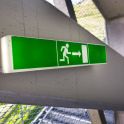
The Radiation Protection Act stipulates that the federal government must draw up plans to protect the population in the event of radiological emergencies. While a general, overarching emergency response plan fulfils the fundamental requirements, specific emergency response plans set out provisions for specific areas of life. GRS experts are currently supporting the Federal Environment Ministry in drawing up these specific plans.
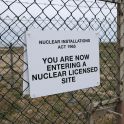
Many countries expect Small Modular Reactors (SMRs) to play their part in helping them become less dependent on fossil fuels for electricity generation. However, most SMR concepts are still at different stages of development. While safety aspects already play a role from the first sketches of ideas, security measures (required protection against malicious acts) are often only given a secondary role. Therefore, in a research project that has just started, GRS is dealing with the characteristics of physical protection and computer security of different SMR concepts and to what extent security requirements and concepts of conventional nuclear facilities can be applied to SMRs. In this way, GRS wants to build up expertise and identify open questions in the application of existing rules and regulations.
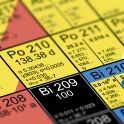
Repository researchers use simulation software to draw a picture of the future of a repository system. How precise and realistic the forecast is depends largely on the input data used for the calculations. The Radi simulation code developed by GRS calculates the decay chains of the radioactive materials from the stored waste. It answers the question of how much 'radioactivity' is still present after a certain period of time and thus forms the basis for further simulations.
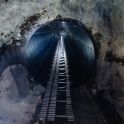
High active waste releases energy in the form of heat. Heat therefore plays a decisive role in the planning of a safe repository. The Bundesgesellschaft für Endlagerung (BGE) has now determined the maximum temperatures that the stored casks may reach on their surface. The temperatures have also been determined on the basis of GRS' research findings. GRS researchers have developed a new methodology for this purpose, which can be used to make statements about temperature compatibility.
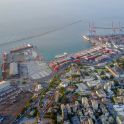
On 4 August 2020, a devastating explosion occurred in the port of Beirut, the cause of which was the improper storage of chemicals. After Germany had already supported Lebanon in the management of chemicals in the aftermath of this explosion, the Lebanese authorities approached Germany with an additional request for support in the retrieval and safe storage of radioactive waste. Within the framework of a cooperation project funded by the Federal Ministry for the Environment (BMUV), the responsible Lebanese authorities are supported by experts from the BMUV and an interdisciplinary GRS team from the departments Radiation Protection and Security.
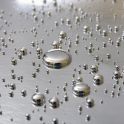
Mercury is toxic. Nevertheless, this heavy metal is used all over the world in a wide variety of products. In the EU, 40 tonnes of mercury are processed every year for the production of amalgam for dental fillings alone. The EU Commission now wants to further restrict its use. Scientists at GRS have supported them in these efforts and explored the possibilities.

Carbohydrates, fats, proteins, minerals, vitamins and water are among the nutrients that the human metabolism needs to live. Natural or artificial radioactive materials also find their way into food in various ways. In order to calculate the radiation dose, the quantities of certain food consumed are used. Researchers at GRS have analysed consumption studies and recorded the quantities of different food groups consumed in Germany according to region and age.
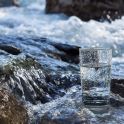
In the project, the GRS research team developed a central database for all information on water supply facilities in Germany that is relevant for radiation protection.
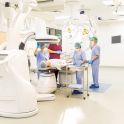
With the help of interventional radiology, certain medical procedures can be carried out in a minimally invasive manner that would previously have required surgery. Specific examples of such procedures include narrowed coronary arteries, which can trigger coronary heart disease or even a heart attack, certain tumours, or strokes. As ionising radiation is generally used for imaging, the radiation exposure of the medical personnel involved has risen steadily over the years in line with the number of such procedures. In order to improve understanding of the distribution of radiation in the room and thus reduce radiation exposure, GRS scientists have produced a training video and a calculation tool as part of a research project funded by the German Federal Ministry for the Environment.